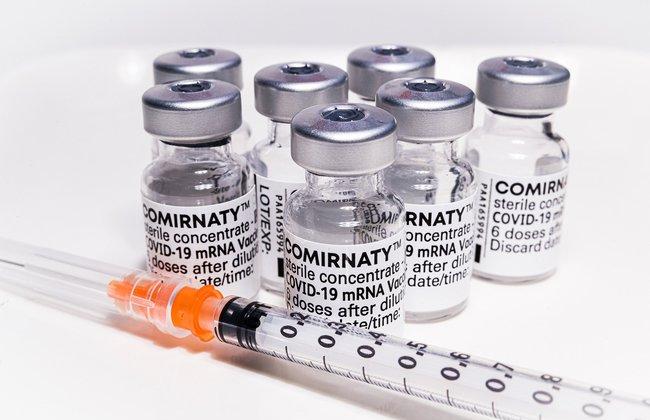Committee for Medicinal Products for Human Use (CHMP) recommends Extension of Marketing Authorisation for BioNTech/Pfizer's COVID-19 Vaccine Comirnaty for Children aged 5 to 11
The Committee for Medicinal Products for Human Use (CHMP) at the European Medicines Agency (EMA) recommended on 25 November 2021 that the COVID-19 vaccine Comirnaty from BioNTech/Pfizer be granted a marketing authorisation extension for the EU and thus also for Germany. Up to now, the vaccine has been approved for persons aged 12 years and older. With the marketing authorisation extension, this vaccine can be used from the age of 5 years. The CHMP points out that the benefit-risk ratio is favourable, especially in children with concomitant diseases that are associated with an increased risk of severe COVID-19. A decision by the European Commission is expected in the near future, which will generally follow the recommendations of the CHMP.

Data basis on efficacy
The conclusion on efficacy is based on the comparison of immunogenicity between children and young adults. It showed that the immune response after two doses of Comirnaty, as measured by the concentration (titre) of neutralising antibodies against SARS-CoV-2, at a lower dose (10 µg) in the 5- to 11-year-old age group was comparable to that in 16- to 25-year-olds who had been vaccinated twice with the higher dose (30µg).
Of 1,305 children in the trial who received the vaccine, three developed COVID-19, while 16 of the 663 children who received the placebo developed COVID-19. This means that the vaccine reduced the risk of COVID-19 disease by 90.7% in this study.
Safety data
A cohort of about 1,500 children with a longer follow-up of at least 3 months after the second dose was studied. A second cohort of 1,500 children had a follow-up of less than four weeks. The trials are not yet finished, so more data are being collected.
The most common side effects in children aged 5 to 11 years are similar to those seen in people aged 12 years and older. These include pain at the injection site, tiredness, headache, redness and swelling at the injection site, muscle pain and chills. These effects are usually mild or moderate and improve within a few days after vaccination.



